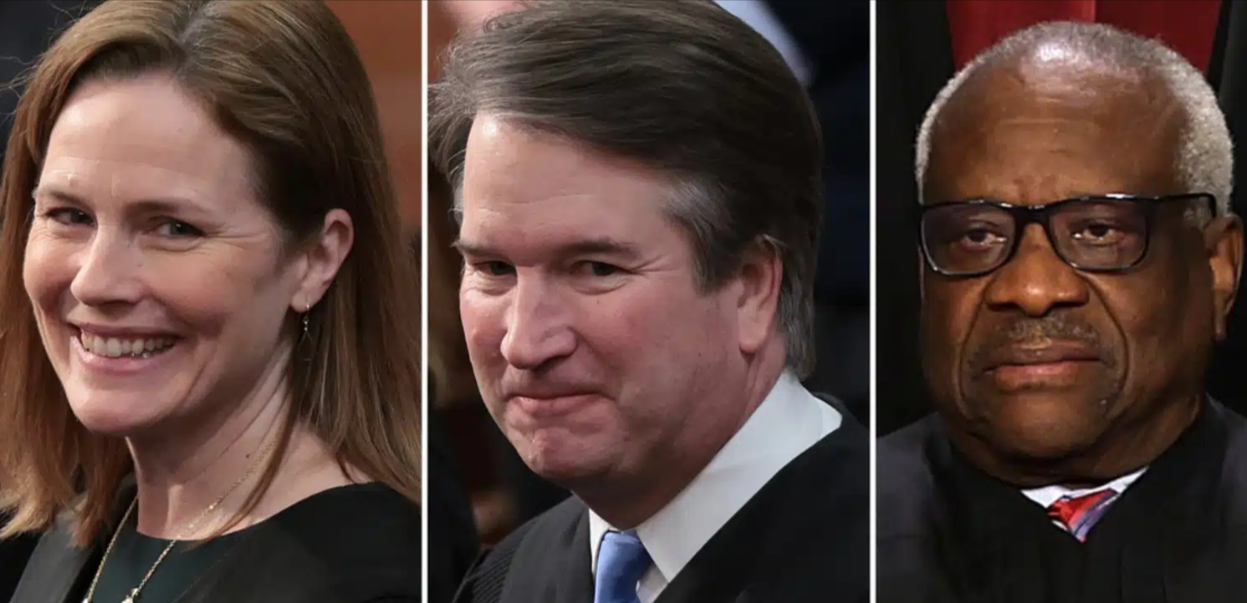Trump Asks Supreme Court To Block His Criminal ‘Hush Money’ Sentencing

President-elect Donald Trump has petitioned the U.S. Supreme Court to halt sentencing in his New York criminal hush money case, scheduled for Friday.
In a legal filing submitted Wednesday morning, Trump’s attorneys argued that sentencing him would harm “the institution of the Presidency and the operations of the federal government.” They are seeking to block the case on grounds of presidential immunity.
“Most fundamentally, forcing President Trump to defend a criminal case and appear for a criminal sentencing hearing at the apex of the Presidential transition creates a constitutionally intolerable risk of disruption to national security and America’s vital interests,” Trump’s legal team wrote.
The Supreme Court has ordered New York prosecutors to respond by Thursday at 10 a.m. ET, as reported by ABC News.
By asking the Supreme Court to intervene, Trump’s lawyers are seeking an unprecedented action: for the court to step into an ongoing criminal case involving a former president. If successful, the move would overturn Trump’s conviction less than two weeks before his inauguration as the 47th president—potentially marking a historic first for the court’s conservative majority.
The request comes after a New York appeals court rejected Trump’s plea on Tuesday to delay sentencing, scheduled for January 10.
Trump was convicted in May on 34 felony counts of falsifying business records related to a hush money payment made to adult film actress Stormy Daniels, which prosecutors argued was intended to boost his chances of winning the 2016 presidential election.
Trump’s petition to the Supreme Court outlines three key issues: whether he is entitled to a stay of proceedings pending his appeal; whether presidential immunity shields evidence related to official acts; and whether a president-elect enjoys the same immunity as a sitting president.
If the court sides with Trump, it could significantly expand the powers of the presidency by briefly granting a private citizen—specifically, a president-elect—the same legal protections as a sitting president.
Trump’s attorneys asserted that the Constitution and the principle of “separation of powers” “compel the conclusion that the President-elect is completely immune from criminal process.”
Last year, the Supreme Court ruled 6-3 to broaden presidential immunity, concluding that a former president is unlikely to face criminal charges for official actions and is fully protected for conduct tied to their primary duties. This ruling strengthened presidential powers while affecting several legal cases involving Trump.
Despite this favorable precedent, Trump faces an uphill battle in persuading the justices to halt his sentencing. Historically, the Supreme Court rarely hears interlocutory cases, even those involving the president-elect.
If convicted, Trump could face up to four years in prison. However, New York Judge Juan Merchan has indicated he plans to grant Trump an unconditional discharge—meaning no criminal record, fines, or probation—to respect the transition period and uphold presidential immunity principles.
Nevertheless, Trump’s defense team warned that sentencing could still “raise the specter of other possible restrictions on liberty.”
“Indeed, every adjudication of a felony conviction results in significant collateral consequences for the defendant, regardless of whether a term of imprisonment is imposed,” the lawyers argued.
Trump’s legal team further contended that the conviction improperly relied on official acts, including social media posts made during his presidency and statements from close White House advisors.
Judge Merchan, however, maintained that Trump’s conviction stemmed “entirely [from] unofficial conduct” and posed “no danger of intrusion on the authority and function of the Executive Branch.”
“This appeal will ultimately result in the dismissal of the District Attorney’s politically motivated prosecution that was flawed from the very beginning, centered around the wrongful actions and false claims of a disgraced, disbarred serial-liar former attorney, violated President Trump’s due process rights, and had no merit,” Trump’s Supreme Court filing concluded.